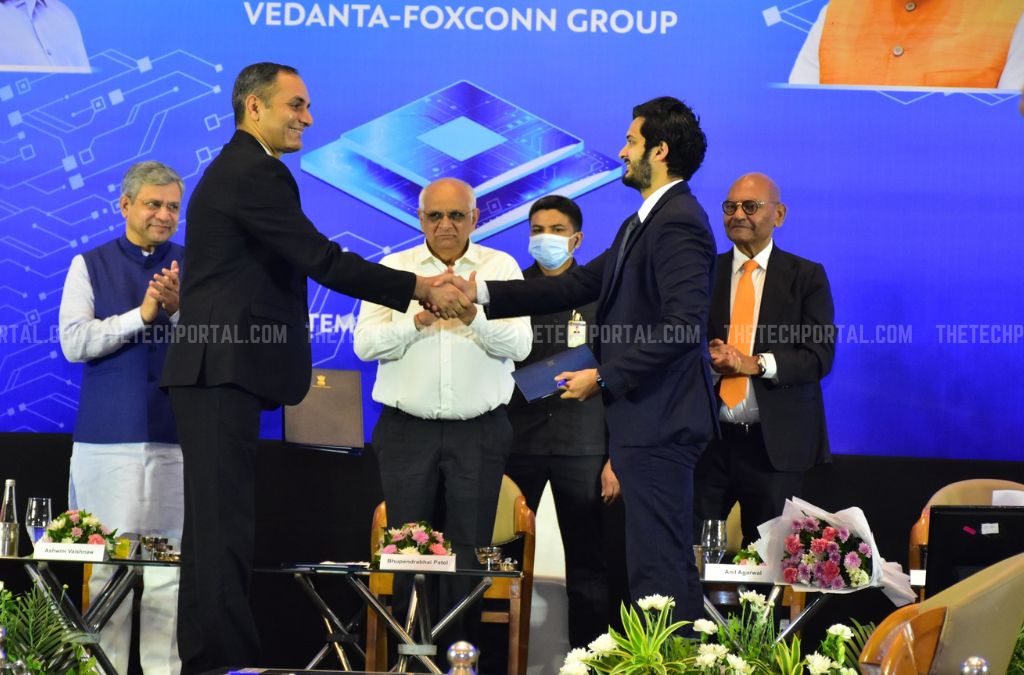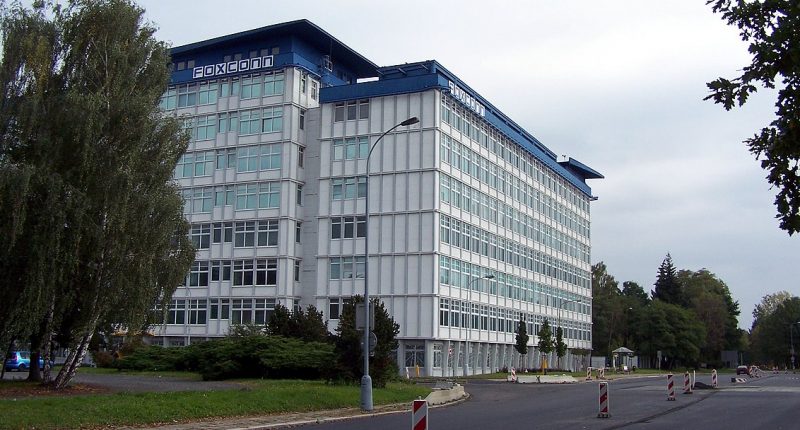India’s ambitious semiconductor ambitions just got a huge setback. Electronics manufacturer Foxconn has announced that it is “pulling out” of a major semiconductor joint-venture with India’s Vedanta, that was announced last year. Under the $19.5 billion JV with the homegrown metals-to-oil conglomerate, new semiconductor and display production plans were set to be set up in Gujarat. The deal between the two was signed last year.
“Foxconn has determined it will not move forward on the joint venture with Vedanta,” Taiwan’s Foxconn said in a statement. The company refrained from elaborating on the reasons as to why it arrived to this decision, but it did add that both companies came to a mutual decision to end the joint-venture. “We will continue to strongly support the government’s “Make In India” ambitions and establish a diversity of local partnerships that meet the needs of stakeholders,” Foxconn added.
Vedanta too sent out a generic statement, with not elaboration on the reasons of Foxconn’s pull-out. In a statement to The Tech Portal, a company spokesperson said, “Vedanta reiterates that it is fully committed to its semiconductor fab project and we have lined up other partners to set up India’s first foundry. We will continue to grow our Semiconductor team, and we have the license for production-grade technology for 40 nm from a prominent Integrated Device Manufacturer (IDM)”.
Going forward, it will be a fully-owned Anil Agarwal-led Vedanta entity, and Foxconn will remove its name from it. This comes after previous efforts to rope in European chipmaker STMicroelectronics (STMicro) as a partner failed to yield fruit.
Foxconn said it is “working to remove the Foxconn name from what now is a fully-owned entity of Vedanta”. “Foxconn has no connection to the entity and efforts to keep its original name will cause confusion for future stakeholders,” Hon Hai Technology group (Foxconn) said.
The withdrawal of Foxconn from the semiconductor project serves as a major setback to Prime Minister Modi’s ambitious “Make in India” campaign. The initiative was launched with an aim to boost domestic manufacturing and make India self-reliant in key sectors, most critical of them being the electronics and semiconductors one. But so far, results have been underwhelming. Another major deal is the one announced by Micron during Modi’s recent state visit to the US, but that too involves India’s central and state governments bearing nearly 70% of the cost and Micron owning the entire business.

The collaboration between Foxconn and Vedanta was expected to bolster India’s position as a electronics major and attract foreign investment, which would come with its own host of benefits. So far, the country has already enlisted the aid of the likes of Micron and Applied Materials.
Micron will be putting in $825 million to set up its first chip factory in India (with support from both the Central and Gujarat governments) and is set to boost the country’s semiconductor manufacturing capabilities. It also significantly reduces the reliance on imported chips. Applied Materials, on the other hand, will make a gross investment of $400 million over a period of four years to set up a collaborative engineering center in Bengaluru.
Coming back to the current development, it seems that Vedanta is not letting this opportunity pass away. It claims to have already lined up other potential partners to set up the first foundry in the country, and remains “fully committed” to its semiconductor fab project. After Foxconn’s withdrawal from chip JV, Vedanta says it has lined up other potential partners to set up India’s first foundry. “We will continue to grow our Semiconductor team, and we have the license for production-grade technology for 40 nm from a prominent Integrated Device Manufacturer (IDM),” Vedanta said in a statement.





